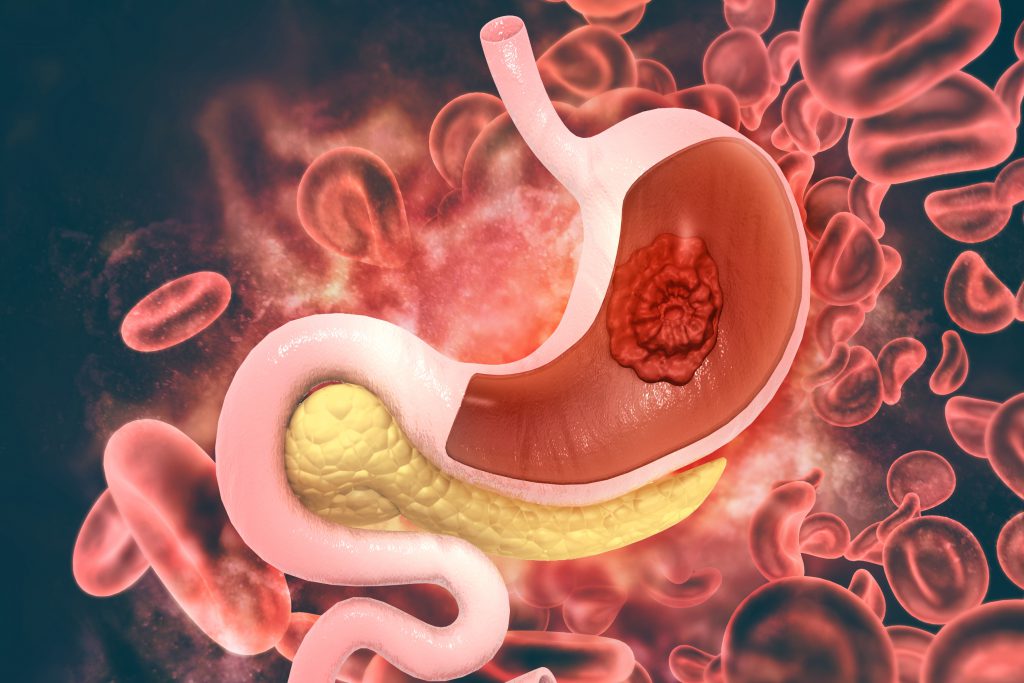Stomach cancer rates are on the rise. Symptoms of stomach cancer may not appear at first or appear much like gastric or other problems and diseases; it causes the detection of cancers to be delayed. Wide awareness is needed in this regard. Stomach cancer is also known as ‘gastric cancer’.
The function of the stomach is to digest food. From the stomach, food and enzymes mix with other parts of the digestive system, such as the small intestine and large intestine. Tumors form when healthy cells in the lining or walls of the stomach change their properties and become cancerous. This process usually happens very slowly. Therefore, stomach cancer develops over many years.
Usually people over sixty are seen to be affected by this type of cancer. Men are more affected by stomach cancer than women.
If not treated early, it can spread to nearby organs through the stomach or bloodstream. Especially spreads in the liver and inside the stomach.
There are several types of stomach cancer—adenocarcinoma, lymphoma, carcinoid tumors. One of the reasons for the growth of cancer cells in the stomach is Helicobacter pylori infection, tumors in other parts of the digestive system, stomach polyps, inherited genetic syndromes; Such as Lynch syndrome and Li-Fromeni syndrome. In addition, tobacco or smoking, being overweight, drinking too much alcohol, eating too much salt in food and not eating fruits and vegetables.
Symptoms of stomach cancer
- The primary symptoms: Prolonged indigestion and stomach discomfort; Feeling bloated after eating; Mild nausea, loss of appetite, heartburn.
- Serious symptoms: Bloody stools and hemoptysis; Weight loss for no reason; Stomach ache Yellowing of eyes and skin; Difficulty swallowing food.
Treatment for stomach cancer
- Depending on the condition, surgery, radiotherapy, chemotherapy are given. In some cases, depending on the growth and size of the tumor, part or all of the stomach may need to be surgically removed.
- Chemotherapy and radiation are usually continued alongside surgery.
Resistance
- Stomach cancer risk can be reduced by making some lifestyle changes. Exercise should be done daily.
- Eat organic food.
- Formalin-free fruits and vegetables should be kept in daily food.
- Do not eat excessive salted food and fried foods.
- Eat properly fresh, cooked, hot and stored foods.
- Refrain from having junk foods or drinks.
- Wash hands thoroughly before eating.
- Avoid smoking and alcohol completely.
- Do not take any medicine without a registered doctor’s advice.
- Drink 8 to 10 glasses of water daily.
Awareness is needed to resist stomach cancers.



 For all latest articles, follow on Google News
For all latest articles, follow on Google News